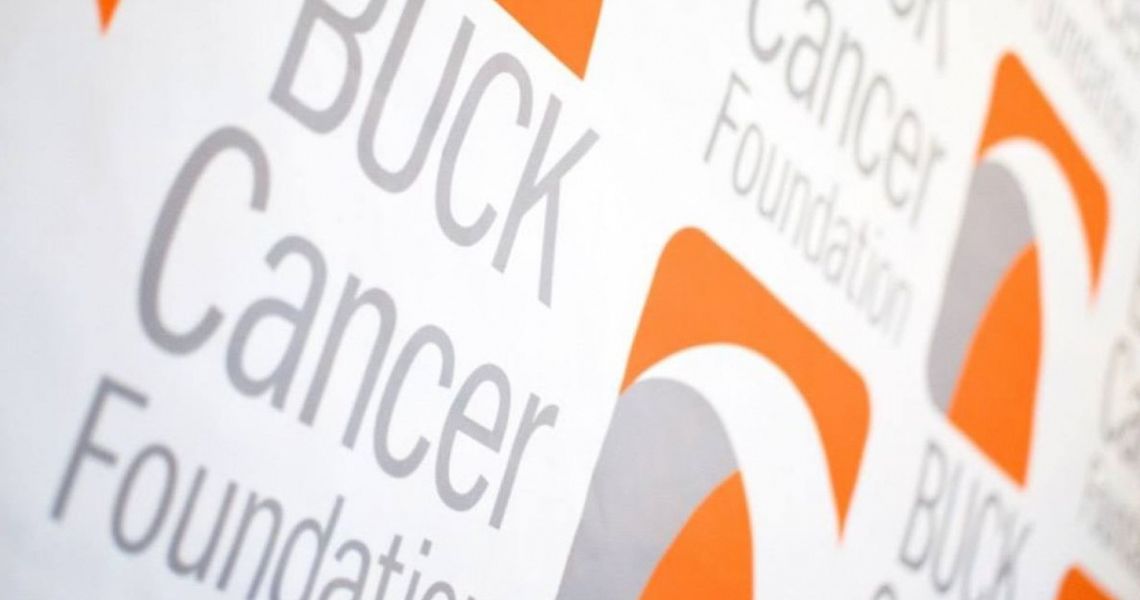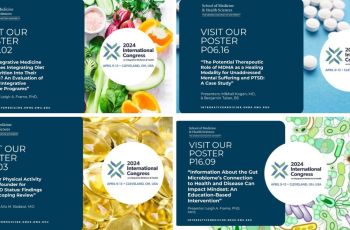BUCK Cancer Foundation, a nonprofit organization that supports integrative oncology therapies, recently awarded a research grant to Mikhail "MIsha" Kogan, MD, associate professor of Medicine, GW School of Medicine and Health Sciences, and Deidre Orceyre, ND, MSOM, L.Ac, of the GW Center for Integrative Medicine (CIM).
Dr. Kogan, who is also CIM's medical director, oversees GW medical and physician assistant students who do clinical rotations at the center. Dr. Orceyre precepts GW medical and physician assistant students also.
BUCK noted that Drs. Kogan and Orceyre are doing amazing work at the center providing greater comfort to cancer patients. In August, due to the generosity of BUCK supporters, the nonprofit's board approved a $5,000 medical research grant for a mercury toxicity study. This small open label trial will include 20 prostate and breast cancer patients.
“This grant from BUCK will be instrumental for us to cover mine and Dr. Deidre Orceyre time,” said Dr. Kogan, who is the lead researcher on the study. “We have also secured additional support from Quicksilver Scientific, who will providing us a complete heavy metal panel on each patient.”
BUCK seeks to support and fund opportunities and endeavors that build a bridge between all viable forms of cancer research and treatment and unite them in one goal: to provide greater comfort to cancer patients during treatment while working toward a cure. The BUCK Cancer Foundation is focused on Bridging & Uniting Cancer Knowledge.
Why mercury toxicity?
Mercury toxicity is challenging to determine with reasonable reliability and the impact of smaller mercury levels can be controversial. Toxicity varies with the form, dose and exposure to mercury. Mercury and cancer have been linked in some research studies. In high doses, some forms of mercury have caused an increase in tumors in rats and mice.
Mercury in Food
Methylmercury is the form of mercury that people are exposed to in their diet. Mercury is released into the environment from volcanic activity, human activities such as coal burning, and industrial processes such as mining, and is transformed into methylmercury by bacteria. Methylmercury accumulates in fish and shellfish, which means large fish are more likely to have higher levels of mercury than smaller fish. Consumption of these fish and shellfish contaminated with methylmercury is the main exposure to mercury worldwide. Cooking does not eliminate mercury.
Mercury Containing Foods
Mercury contamination can settle in lakes, rivers and oceans where it is ingested by small animals. Pregnant women, women who are nursing and children under six should avoid eating these large fish. Examples of fish with high mercury levels include: Shark, tuna, mackerel, marlin, swordfish, ahi tuna, orange rough, and tilefish.
To Reduce Mercury Exposure
To reduce mercury exposure, some simple remedies include: drinking more water, increasing fiber intake, and reducing your exposure. Water and fiber naturally help the body get rid of mercury. To avoid unnecessary exposure, know your fish and limit your intake of large fish. Try smaller fish such as shrimp or salmon. Suggest your dentist use color resin instead of dental filling, and watch out for pollution.



